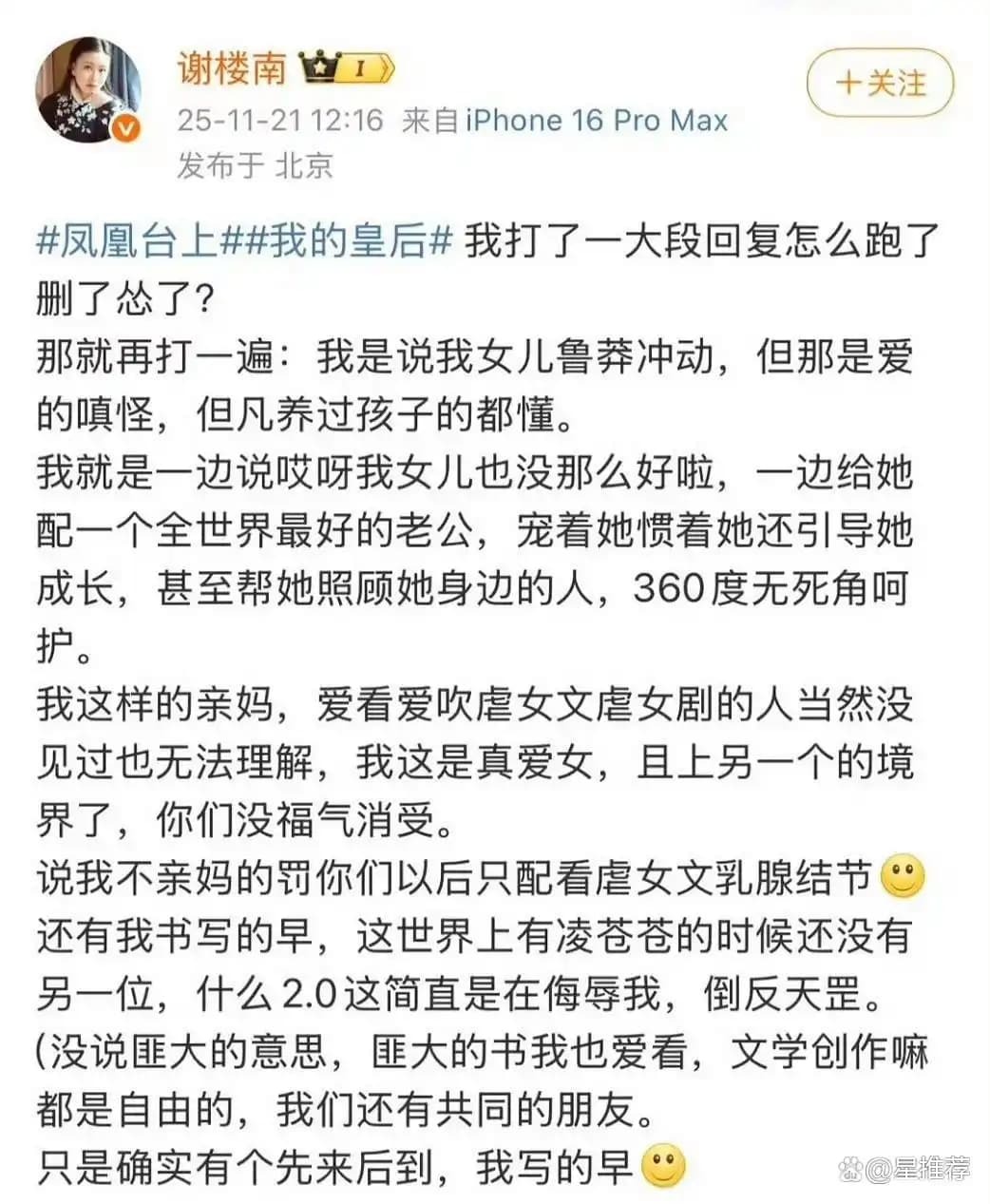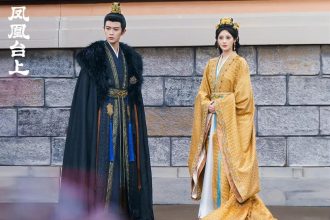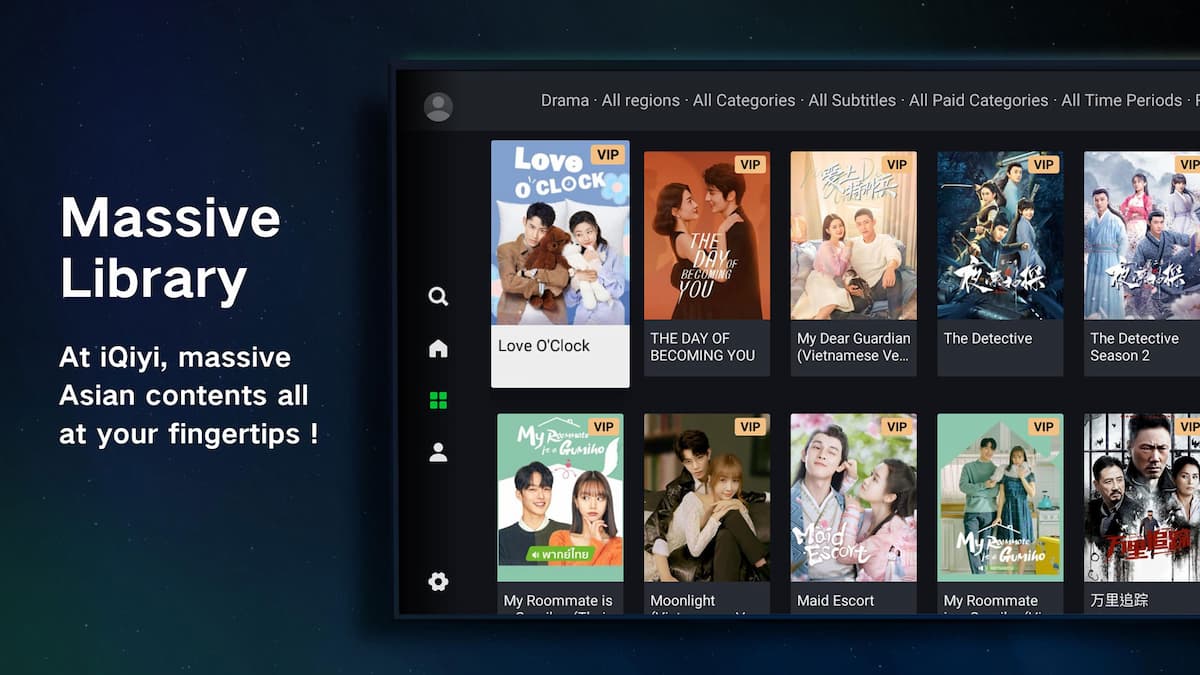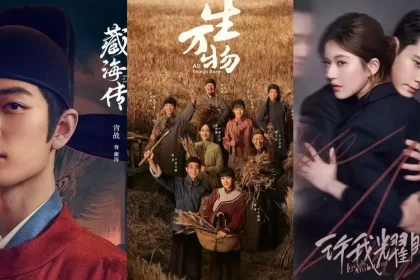LayarHijau– The drama Love and Crown, adapted from Xie Lounan’s novel Wǒ de Huánghòu (My Queen), has become the center of controversy. The series has been flooded with criticism, ranging from claims of messy plot logic and inconsistent characterizations to accusations that several elements remind viewers of Goodbye My Princess.
On November 21, the novel’s author, Xie Lounan, posted several sharp statements on Weibo. She praised the male lead actor, Ren Jialun, saying he successfully portrayed Xiao Huan as written in the novel. However, regarding the female lead, Ling Cangcang—played by Peng Xiaoran—she stated that she could not accept the drama’s interpretation of the character.
She accused the adaptation of completely altering the character’s personality, making her “no longer the little princess” she originally created. She even admitted she “cried quietly” because of her disappointment with the adaptation.

In additional comments, Xie Lounan defended her interpretation of Cangcang as a girl who is spoiled, impulsive, yet loves Huan wholeheartedly. She explained that in the novel, Cangcang repeatedly lowers herself to win Huan’s affection—even to the point of becoming “a little maid who serves her husband tea” to comfort the emperor.
When a reader angrily confronted her, Xie Lounan responded with a hyperbolic phrase common in Chinese internet slang: “Go read that scene (in the novel), and your emotions will flow smoothly.”
The Mandarin phrase she used was “乳腺疏通,” which literally refers to unblocking milk ducts. In fandom slang, however, it means “to let off steam” or “to release pent-up emotions,” but many Weibo users considered its use in this argument as inappropriate and demeaning.
The situation escalated when Xie Lounan hinted that “certain parties” might have hired buzzers to attack her—a suspicion that netizens directed toward Peng Xiaoran’s side. Although Xie Lounan did not mention any name, her insinuation was considered obvious.
Peng Xiaoran Responds to the Criticism
That night, Peng Xiaoran posted a long statement addressing the controversy. She did not deny that some viewers noticed similarities between Love and Crown and Goodbye My Princess. She herself felt the same when she first read the script. She noted that such parallels were understandable, especially since the drama’s early promotions highlighted several similarities.

Regarding criticism of the character Ling Cangcang, Peng Xiaoran emphasized that actors do not have control over character design or narrative direction. She revealed a surprising fact:
- When she first accepted the role, she was only given scripts for the first 10 episodes, with no clarity about further character development or story progression.
- A day before filming began, she only received the final script for one episode. The nine earlier episodes she had studied were “completely scrapped and rewritten.”
- After that, the scripts were delivered gradually as filming progressed, making it extremely difficult to maintain consistent characterization.
Responding to Xie Lounan’s aggressive tone, Peng Xiaoran said that as fellow creators in the entertainment industry, everyone should work together to maintain quality. She stressed that tearing each other down during the broadcast period would not help anyone.
She also mentioned the term “雌竞” (female rivalry), urging women in the industry not to belittle or undermine each other just to defend their own positions.
“This drama involves so many people—scriptwriters, directors, actors, the camera team, the art department, and field crew. Everyone is trying their best,” she wrote. “If the result isn’t perfect, that’s part of the process. But hurting each other along the way won’t help anyone,” she added.
Xie Lounan Softens Slightly
After Peng Xiaoran’s response went viral, Xie Lounan posted a clarification saying that her phrase “whether they have human feelings or not” was not directed at Peng Xiaoran but at a fan who had been arguing with her. However, she insisted that the drama’s version of Ling Cangcang was not “her child,” defending her novel’s interpretation of a “romantic fantasy” in which the female lead willingly lowers herself for love.
For many modern viewers, the idea of a female character whose entire existence revolves around a man feels outdated. This difference in perspective is what fueled the clash between the author and the drama adaptation.
The controversy eventually highlighted broader issues: weak coordination between novelists and screenwriters; the trend of scripts being written during ongoing filming; differences in gender values between early-2000s novels and today’s audiences; and public expectations that actors should shoulder responsibility for aspects beyond their control.
Amid the tension, Peng Xiaoran urged the public to continue evaluating the work honestly and enjoy the drama however they like—ending her statement with:
“Please keep watching and keep discussing. This drama still has many things to enjoy.”




















